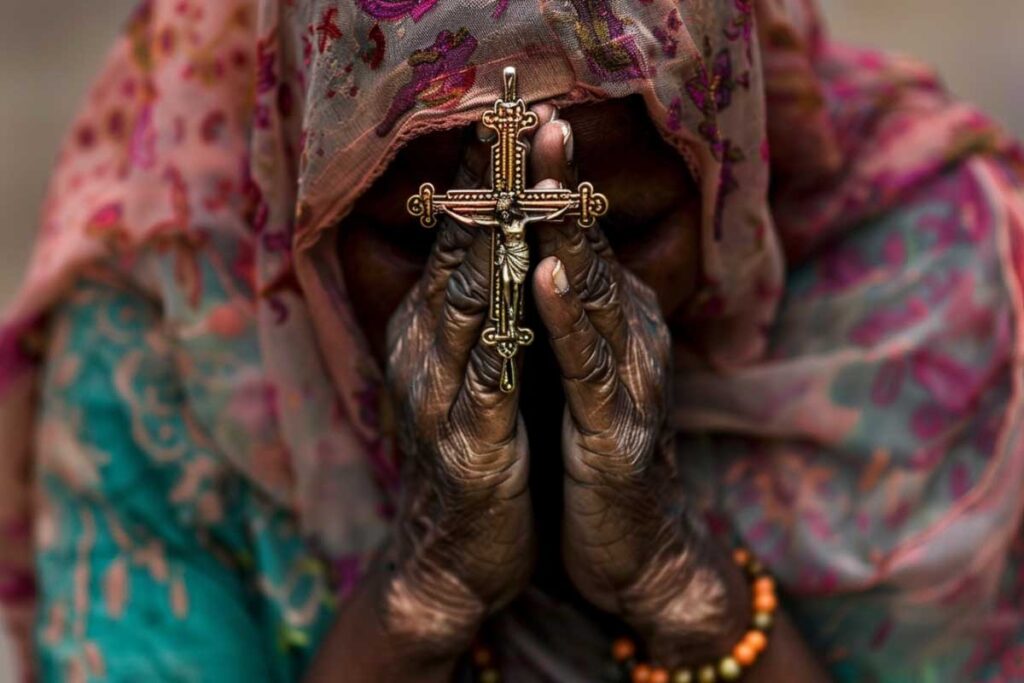Millions of Christians continue to experience prejudice, violence, and oppression because of their beliefs, making Christian persecution a major problem on a global scale. Raising awareness and organizing assistance for persecuted Christians requires an understanding of the scope and intensity of persecution. This post examines five shocking figures that demonstrate the scope of Christian persecution in the modern world.
Over 340 Million Christians Live in Countries Where They Face Persecution
On Open Doors USA’s World Watch List, more than 340 million Christians reside in nations where they face severe Christian persecution due to their religious beliefs. These countries, which include, among others, North Korea, Afghanistan, Somalia, Pakistan, and Nigeria, have severe restrictions on the expression of religion and expose their adherents to prejudice, violence, and even death. The overwhelming number of Christians who endure such mistreatment highlights the pressing need for action to stop persecution and defend the rights of believers everywhere. For many Christians across the world, things are bad because they are persecuted for no other reason than their religious convictions.
Every Day, 13 Christians Are Killed for Their Faith
Tragically, countless Christians lose their lives as a result of persecution every day. The International Society Without Human Rights estimates that every day, thirteen Christians are slain for no other reason than that they are Christians. These murders take many different forms, such as targeted assaults, church bombs, and executions carried out by repressive governments. Persecuted Christians suffer terrible repercussions when they live in hostile circumstances, and this emphasizes how urgent it is to confront the current human rights crises. To save the lives of persecuted Christians and guarantee their safety and security, the world community must act decisively.
80% of Religious Freedom Violations Target Christians
The vast majority of international abuses of religious freedom target Christians in particular. Roughly 80% of all incidents of religious persecution, according to the Pew Research Center, are believed to target Christians. Restrictions on religious activities, prejudice in the workplace and educational system, and physical attacks on Christians and their places of worship are a few examples of these transgressions. The fact that Christians are disproportionately targeted highlights the pervasiveness of anti-Christian prejudice and the necessity of coordinated measures to defend believers’ freedom to practice their faith without fear of retaliation. Prioritizing religious freedom and acting decisively to stop prejudice and violence against Christians are two things that nations and worldwide organizations must undertake.
More Than 2,200 Churches and Christian Buildings Were Attacked Last Year
Data from the Aid to Christians in Need organization shows that over 2,200 churches and Christian structures were assaulted or destroyed globally in 2020 alone. These assaults take many forms, from vandalism and destruction of sacred places to bombs and arson. Attacks against churches violate the religious and cultural traditions of the targeted community, in addition to denying them a place of worship. The startling regularity of these assaults emphasizes the necessity of stepped-up security protocols and global cooperation to safeguard Christian communities and their places of worship. To defend religious freedom and vulnerable religious minorities, communities and governments must denounce these violent crimes.
Over 300 million Christians Experience Discrimination
Millions of Christians face significant levels of marginalization and discrimination because of their beliefs, in addition to acts of physical violence and assault. Over 300 million Christians experience intimidation, harassment, or discrimination as a result of their religious views, according to the Pew Research Center’s findings. This discrimination can take many different forms, such as governmental limits on religious freedom, economic hardship, and social exclusion. The fact that discrimination against Christians is so common highlights how widespread persecution is and how urgently coordinated work to advance religious tolerance and respect for diversity is needed. Government and civil society groups need to collaborate to fight prejudice and guarantee that everyone is free to practice their faith without fear of discrimination or retaliation.
Conclusion
The alarming statistics of modern-day Christian persecution present a sad image of the difficulties experienced by believers around the globe. Christians continue to face extreme persecution for their beliefs, ranging from widespread prejudice to targeted murder and attacks on churches. Governments, communities, and people must unite to promote religious freedom, increase public awareness, and aid persecuted Christians in their fight for equality and justice.






